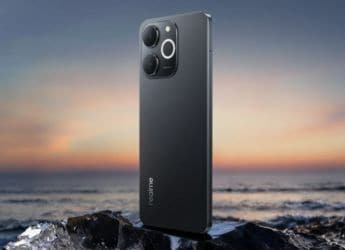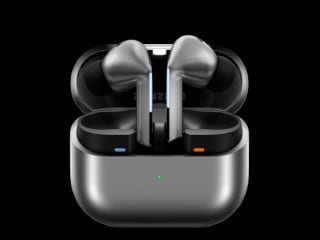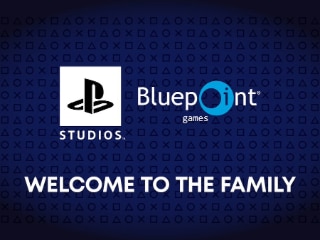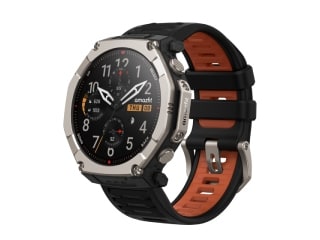For EV Batteries, Lithium Iron Phosphate Becoming Material of Choice
LFP, embraced by EV industry leader Tesla two years ago, has sparked new interest especially in the US.

Tesla is among the automakers leading the quest in markets outside of China to provide lower-priced EVs
As the auto industry scrambles to produce more affordable electric vehicles, whose most expensive components are the batteries, lithium iron phosphate is gaining traction as the EV battery material of choice.
The popularity of the chemical compound known as LFP is due partly to environmental and geopolitical concerns. But technological advances have also reduced the performance gap with more widely used materials such as nickel and cobalt.
LFP, embraced by EV industry leader Tesla two years ago, has sparked new interest especially in the US, where a clutch of domestic and overseas manufacturers has pledged more than $11 billion (nearly Rs. 90,200 crore) in new production facilities.
Overseas, two of the world's largest automakers, Toyota Motor and Hyundai Motor, have both announced plans in the past week to equip their future vehicles with LFP batteries, but have not disclosed plans for the US.
“LFP is less expensive than cobalt and nickel, and all the minerals can be obtained here in North America (which means) much lower transportation costs and a more secure supply chain,” said Stanley Whittingham, professor at Binghamton University in New York and a 2019 Nobel laureate for his work on lithium ion batteries.
The addition of manganese, a staple ingredient in rival nickel cobalt manganese (NCM) battery cells, has enabled lithium iron phosphate cells to hold more energy than previously, providing EVs with more range — up to 450 miles (724 km) on a single charge, Toyota said recently.
Michigan-based Our Next Energy, which is building a $1.6 billion (nearly Rs. 13,100 crore) battery manufacturing complex in Van Buren Township, is a proponent of LFP, according to founder and chief executive Mujeeb Ijaz, because “the materials are more abundant and sustainable, with far less risk” of fire.
“We've also demonstrated that you can match the range of cobalt cells with no compromise,” he said.
Tesla is among the automakers leading the quest in markets outside of China to provide lower-priced EVs — in Tesla's case, targeting a base price of around $25,000 (nearly Rs. 20 lakh). The use of LFP batteries should help Tesla and rivals to achieve that goal, experts say.
Ford Motor aims to open a $3.5 billion (nearly Rs. 28,700 crore) LFP cell manufacturing plant in western Michigan, leveraging technology licensed from China's CATL, the world's largest EV battery maker. The goal, Ford CEO Jim Farley said in February, is to lower the automaker's cell costs to less than $70 (nearly Rs. 5,800 crore) a kilowatt-hour, from more than $100 (nearly Rs. 8,000)/kWh for current NCM cells.
More than 90 percent of LFP materials and components still come from China, said battery expert Shirley Meng, a University of Chicago professor and head of Argonne National Laboratory's Collaborative Center for Energy Storage Science.
The rapidly increasing adoption of LFP by EV manufacturers including Tesla and Hyundai suggests those companies “are not ready to decouple from China," Meng said.
'Attractive proposition'
Battery expert Lukasz Bednarski, author of the 2021 book “Lithium: The Global Race for Battery Dominance and the New Energy Revolution,” believes automakers' interest in building lower-priced EVs could be one of the drivers behind LFP's rising popularity.
“LFP provides good enough performance at a lower cost, which makes it an attractive proposition for EVs for the middle class,” he said.
Bednarski added that the US Inflation Reduction Act (IRA) provides incentives “for the development of the whole battery chain (with no) preference for LFP chemistry.”
Rising investment in LFP manufacturing facilities in the United States is coming not just from domestic companies like Ford and ONE.
Battery makers from Norway, Israel, South Korea and even China have committed to building US facilities to produce LFP materials, components and batteries, some of which will be used not in vehicles, but in large energy storage systems.
“LFP was invented in the US and first commercialised here,” said Whittingham. He said this happened before Chinese companies such as BYD and CATL “moved fast” to improve and deploy the technology, mainly in EVs.
Now, given its continued cost advantage over NCM, he added, LFP “should be used in all grid storage systems and lower-cost cars.”
© Thomson Reuters 2023
Get your daily dose of tech news, reviews, and insights, in under 80 characters on Gadgets 360 Turbo. Connect with fellow tech lovers on our Forum. Follow us on X, Facebook, WhatsApp, Threads and Google News for instant updates. Catch all the action on our YouTube channel.
Related Stories
- Samsung Galaxy Unpacked 2026
- iPhone 17 Pro Max
- ChatGPT
- iOS 26
- Laptop Under 50000
- Smartwatch Under 10000
- Apple Vision Pro
- Oneplus 12
- OnePlus Nord CE 3 Lite 5G
- iPhone 13
- Xiaomi 14 Pro
- Oppo Find N3
- Tecno Spark Go (2023)
- Realme V30
- Best Phones Under 25000
- Samsung Galaxy S24 Series
- Cryptocurrency
- iQoo 12
- Samsung Galaxy S24 Ultra
- Giottus
- Samsung Galaxy Z Flip 5
- Apple 'Scary Fast'
- Housefull 5
- GoPro Hero 12 Black Review
- Invincible Season 2
- JioGlass
- HD Ready TV
- Latest Mobile Phones
- Compare Phones
- Vivo V70
- Vivo V70 Elite
- Google Pixel 10a
- Tecno Camon 50
- Tecno Camon 50 Pro
- Lava Bold N2
- Vivo V60 Lite 4G
- Tecno Pova Curve 2 5G
- Asus Vivobook 16 (M1605NAQ)
- Asus Vivobook 15 (2026)
- Infinix Xpad 30E
- Brave Ark 2-in-1
- boAt Chrome Iris
- HMD Watch P1
- Xiaomi QLED TV X Pro 75
- Haier H5E Series
- Asus ROG Ally
- Nintendo Switch Lite
- Haier 1.6 Ton 5 Star Inverter Split AC (HSU19G-MZAID5BN-INV)
- Haier 1.6 Ton 5 Star Inverter Split AC (HSU19G-MZAIM5BN-INV)







![[Partner Content] OPPO Reno15 Series: AI Portrait Camera, Popout and First Compact Reno](https://www.gadgets360.com/static/mobile/images/spacer.png)









